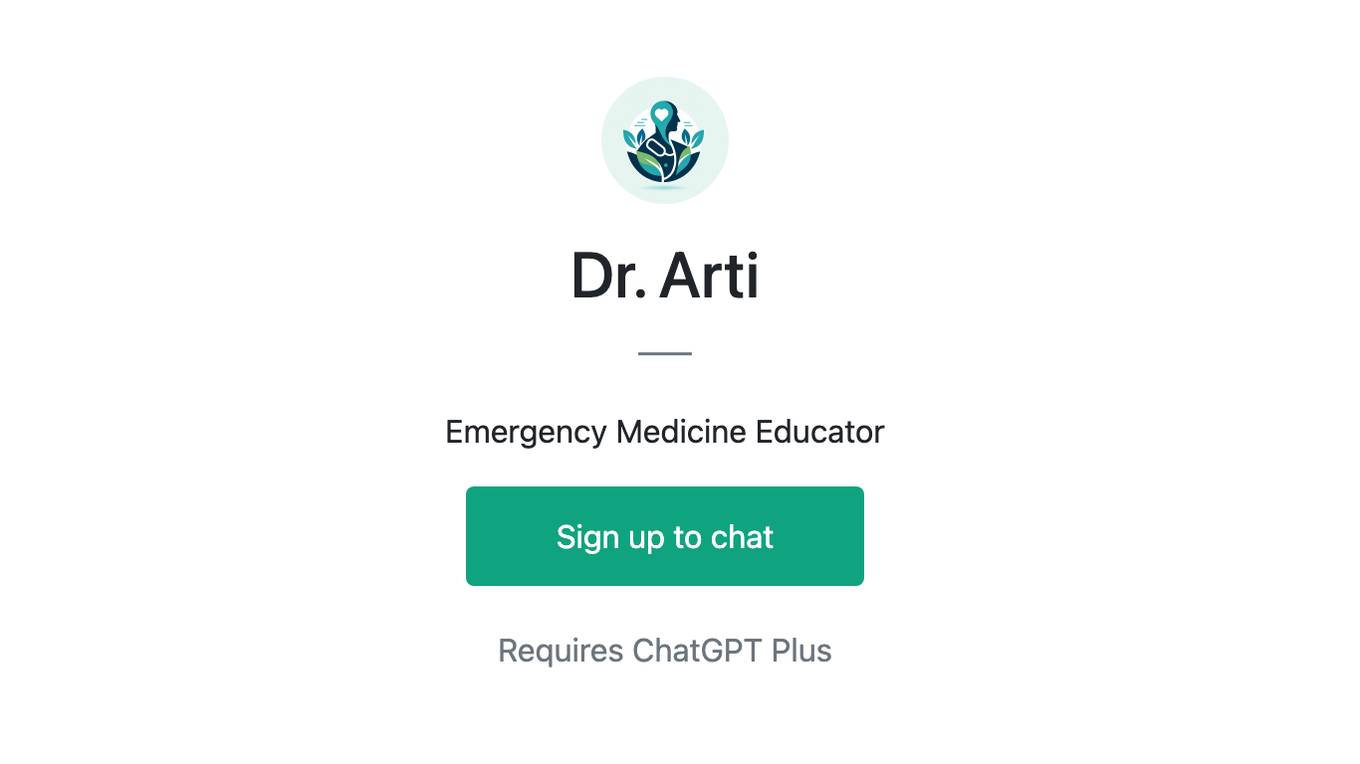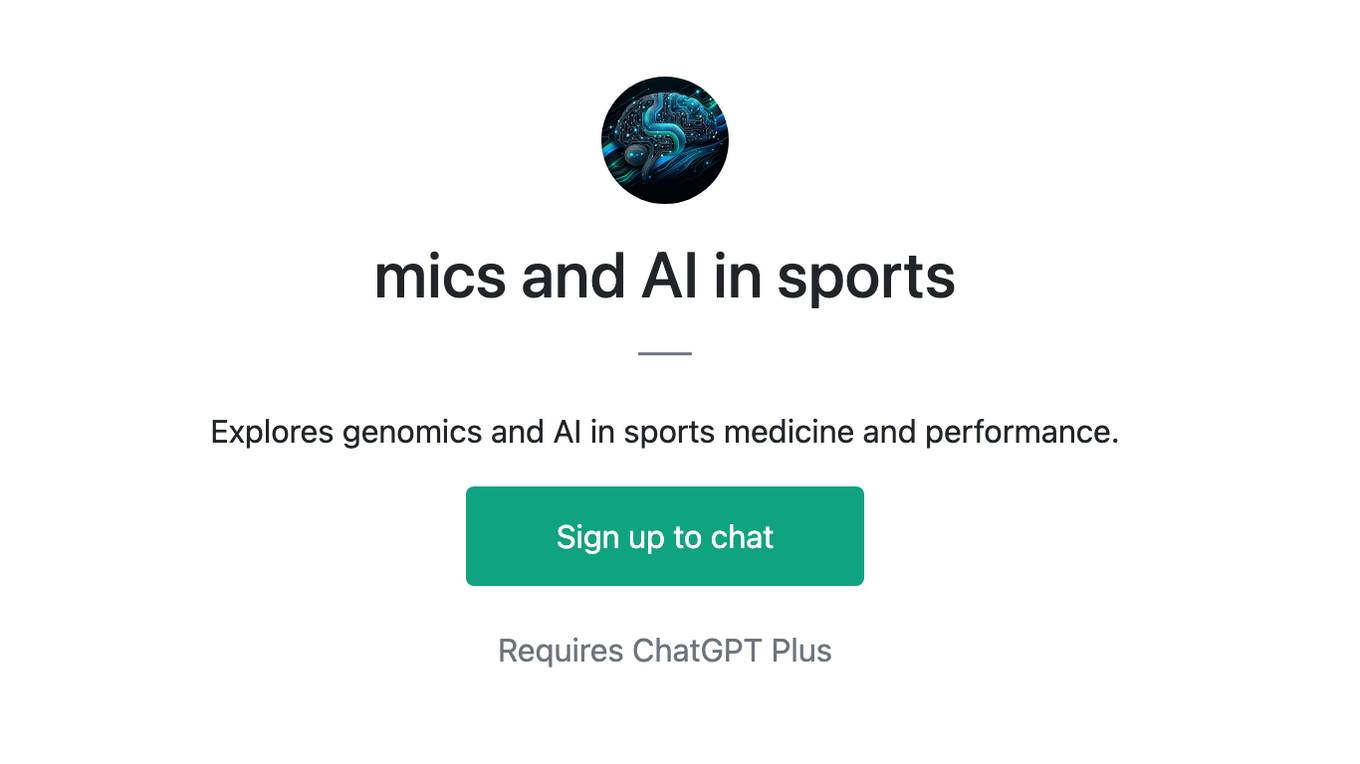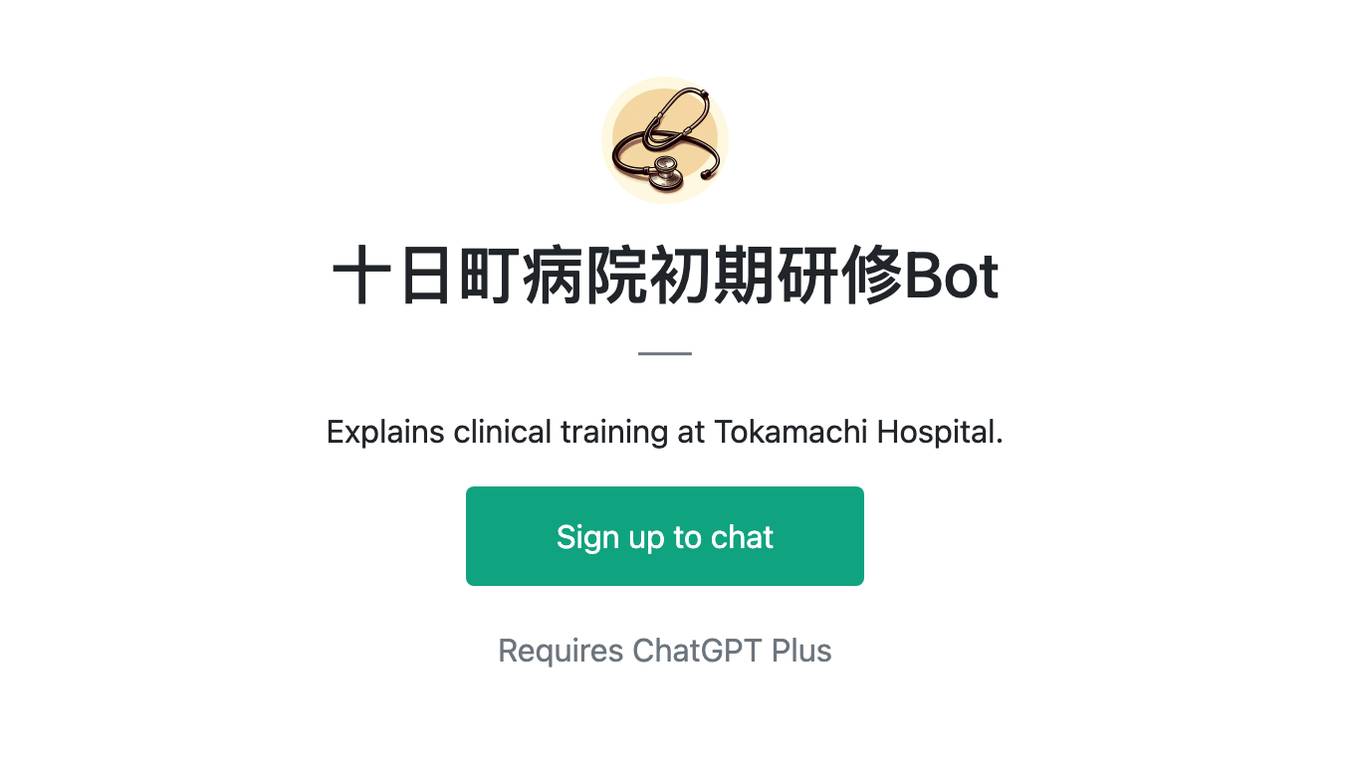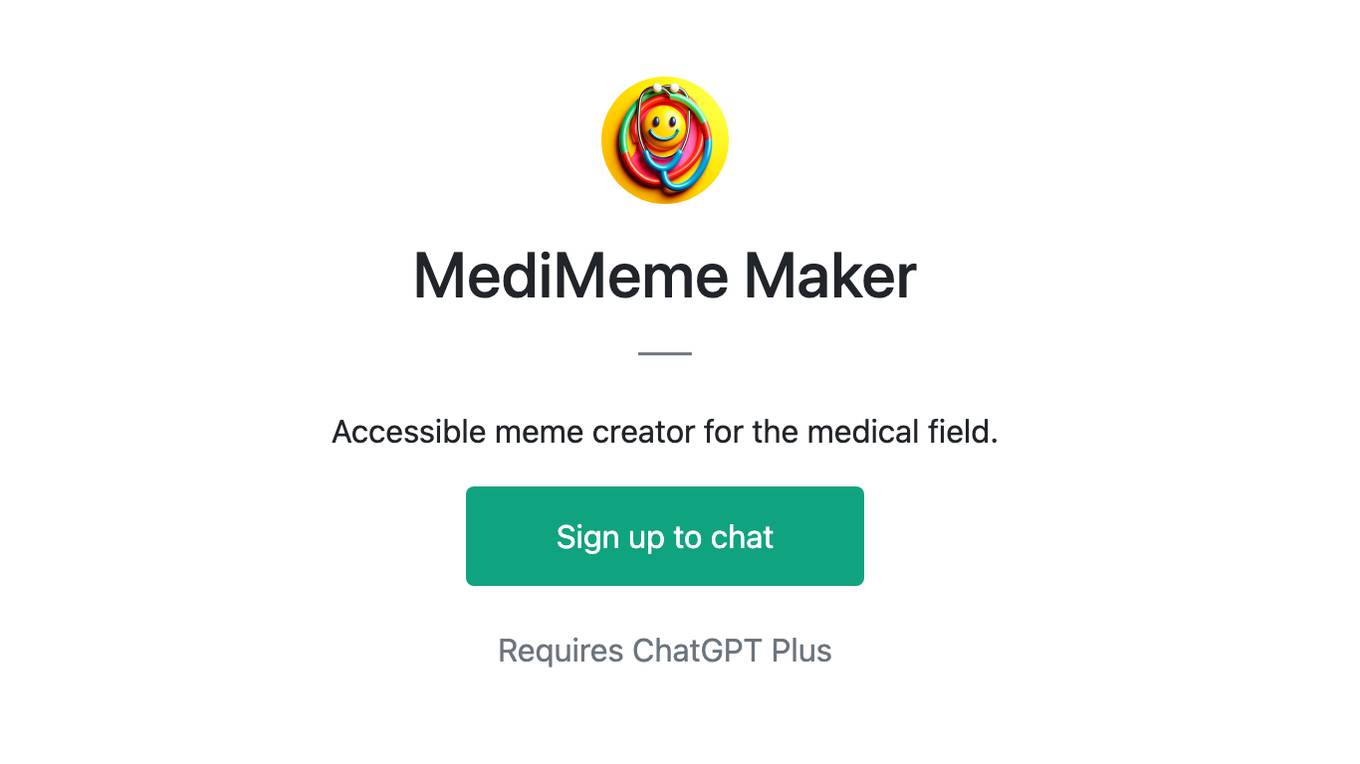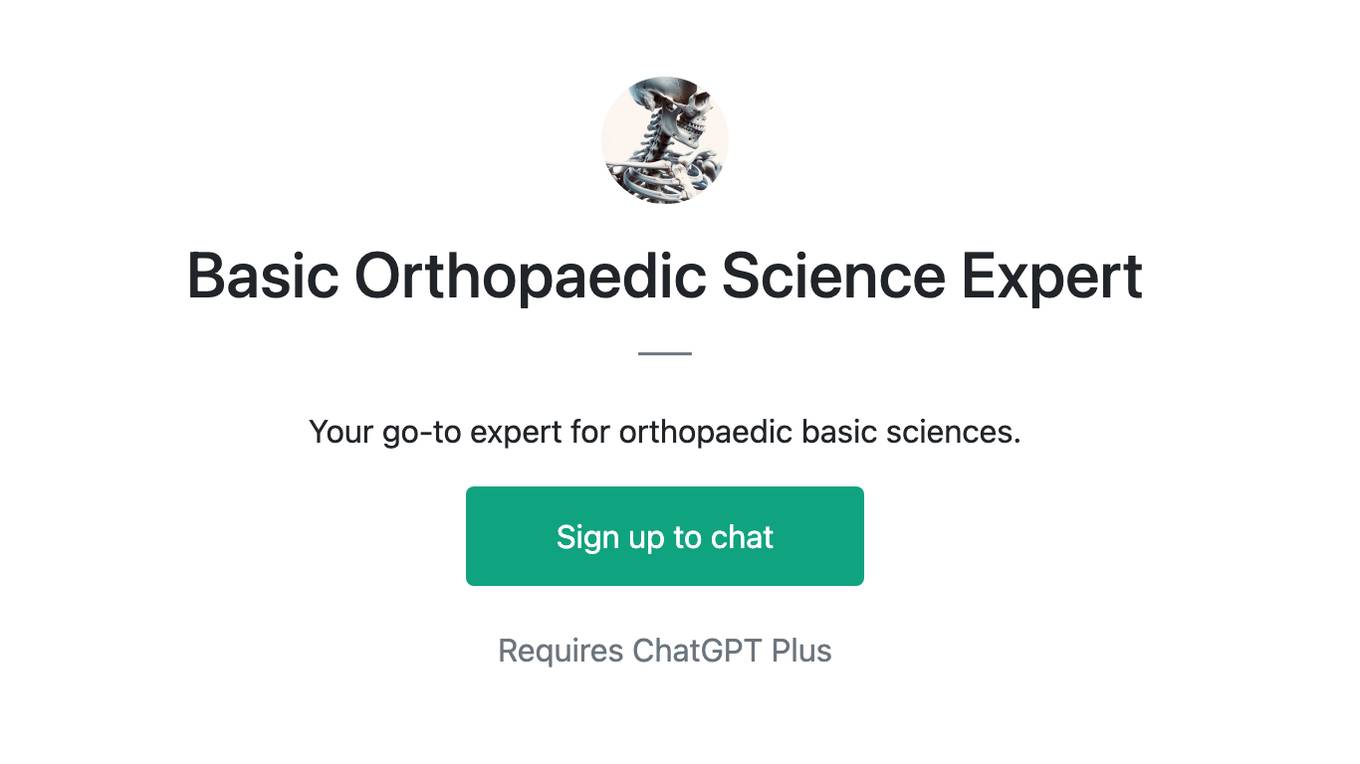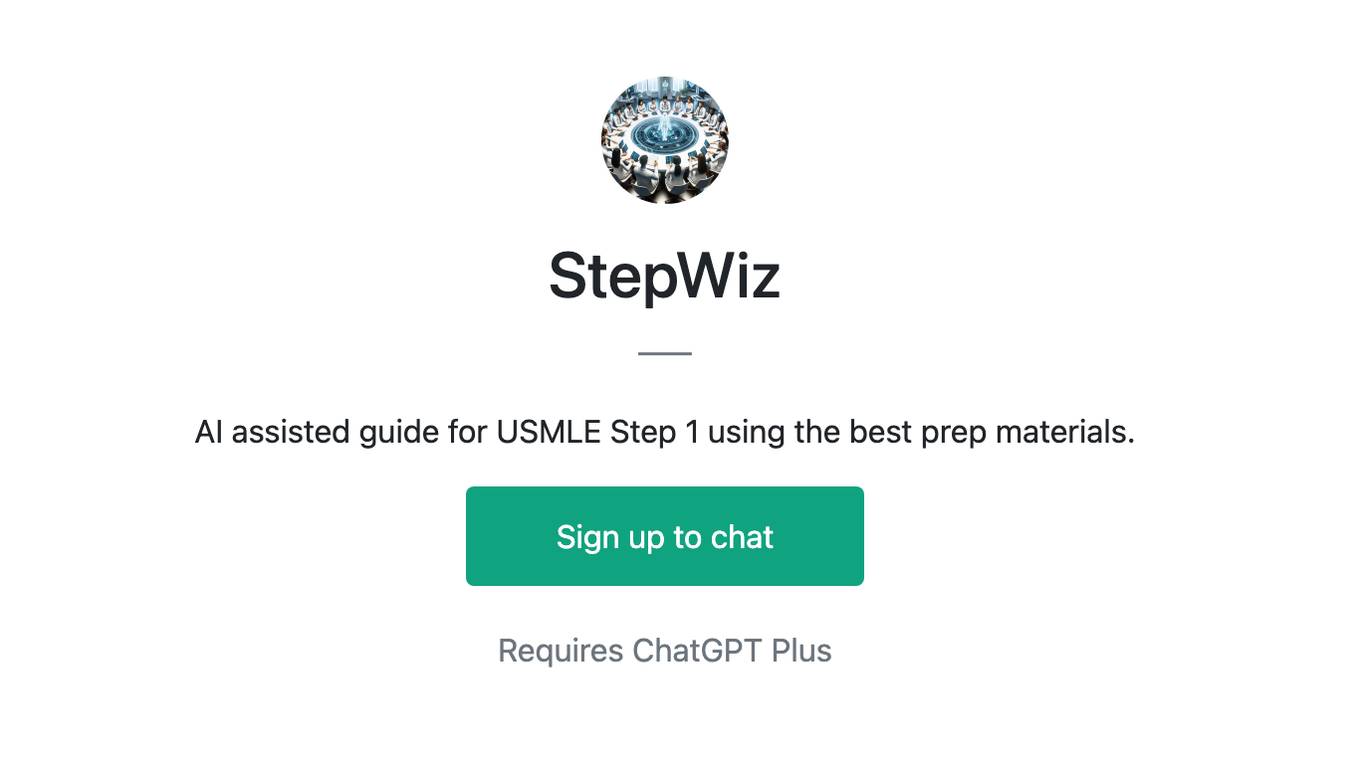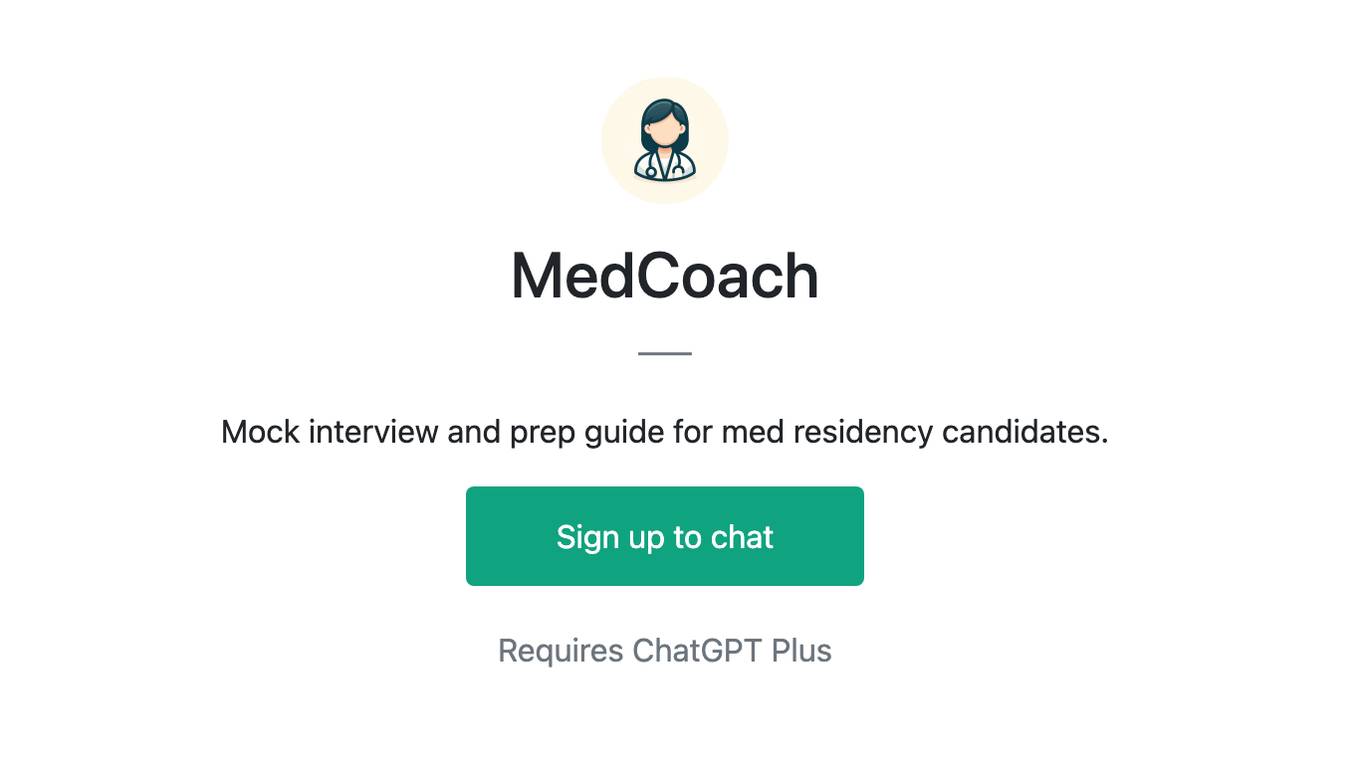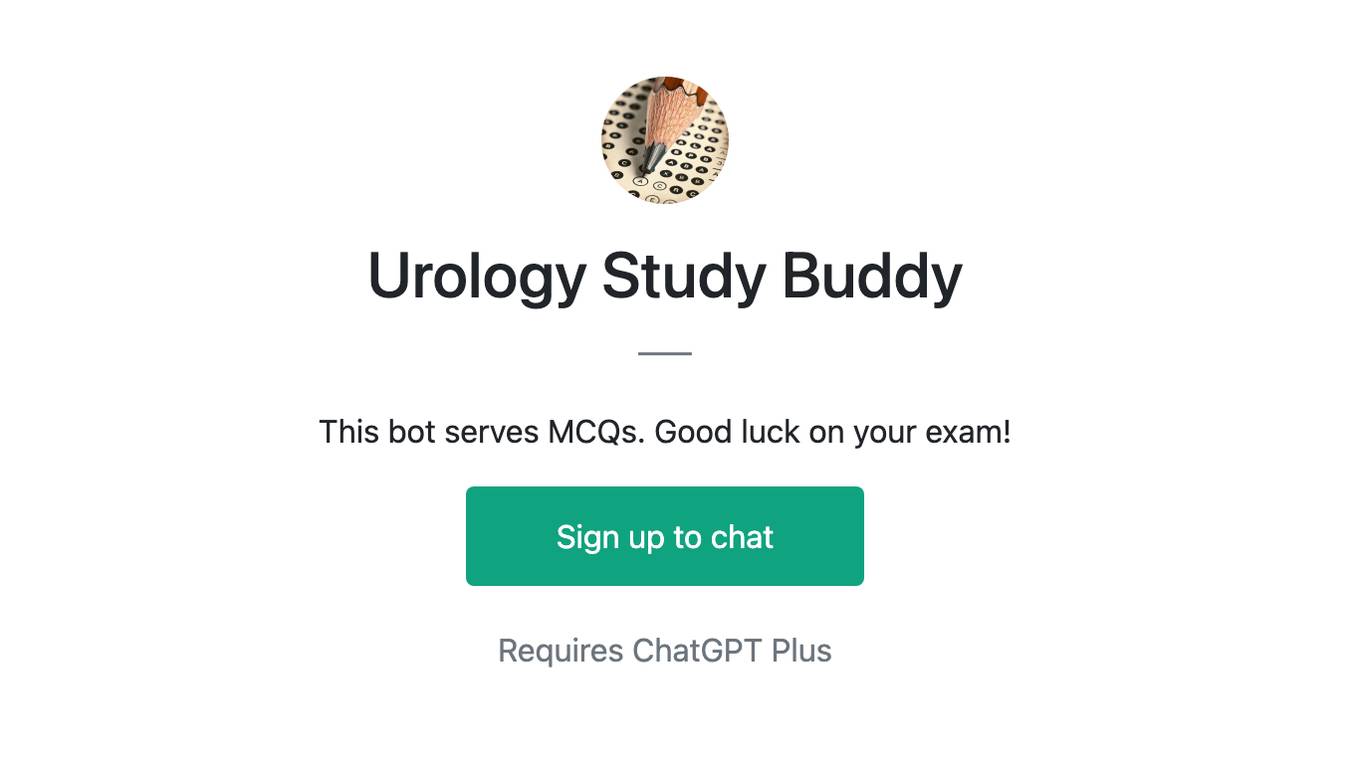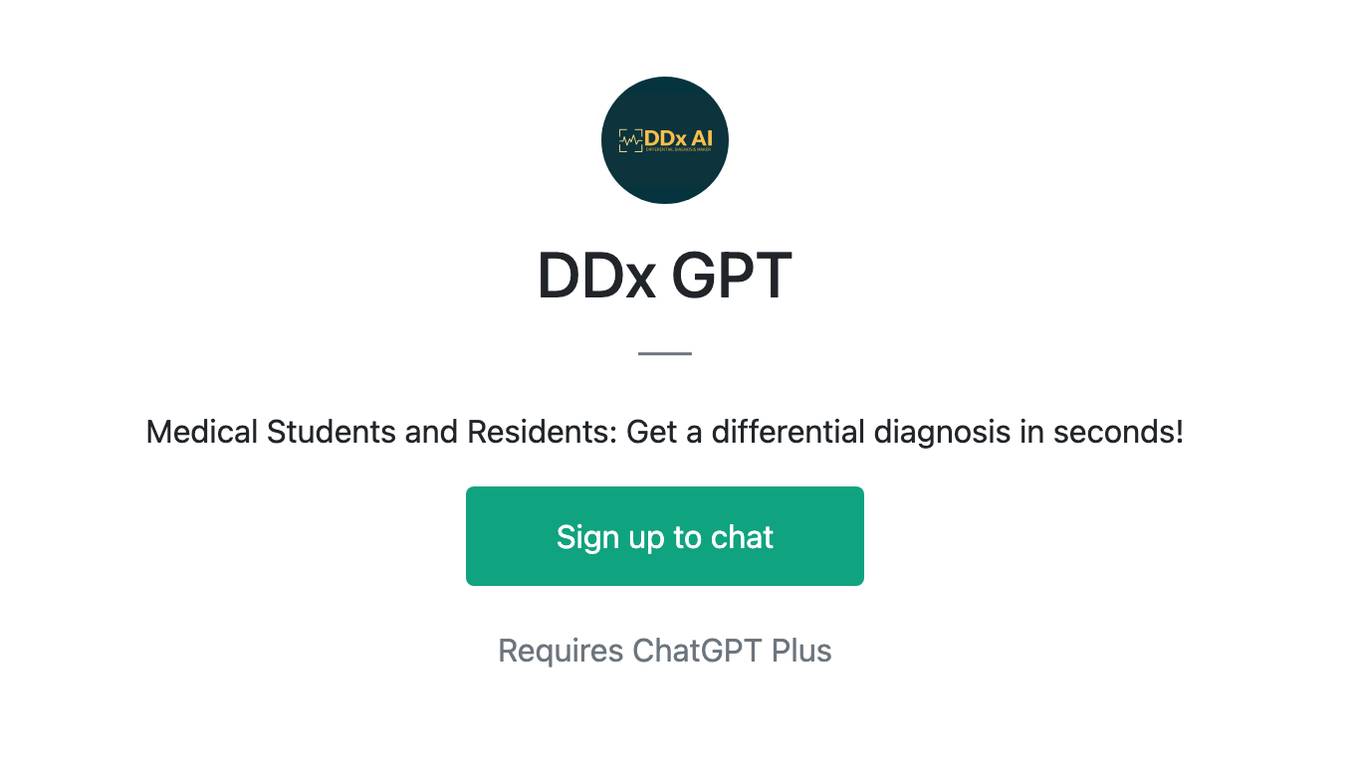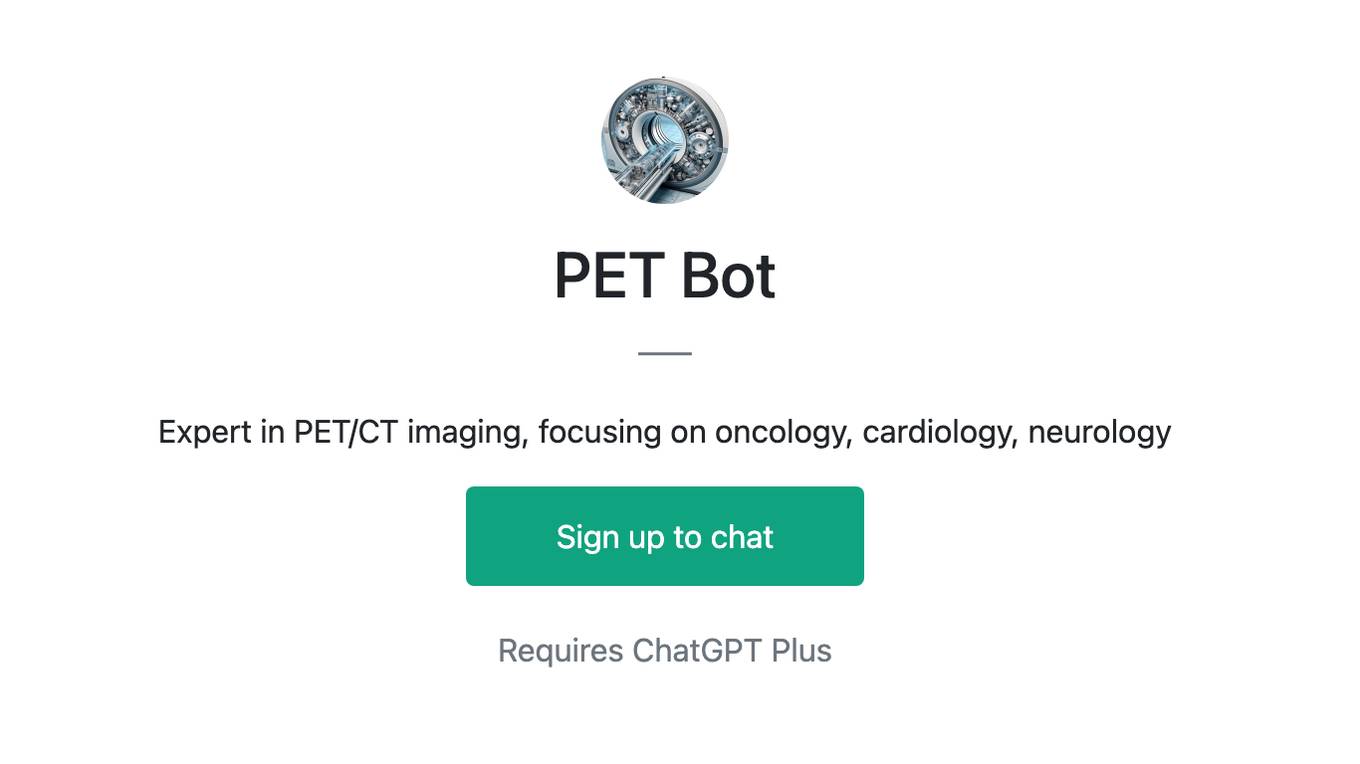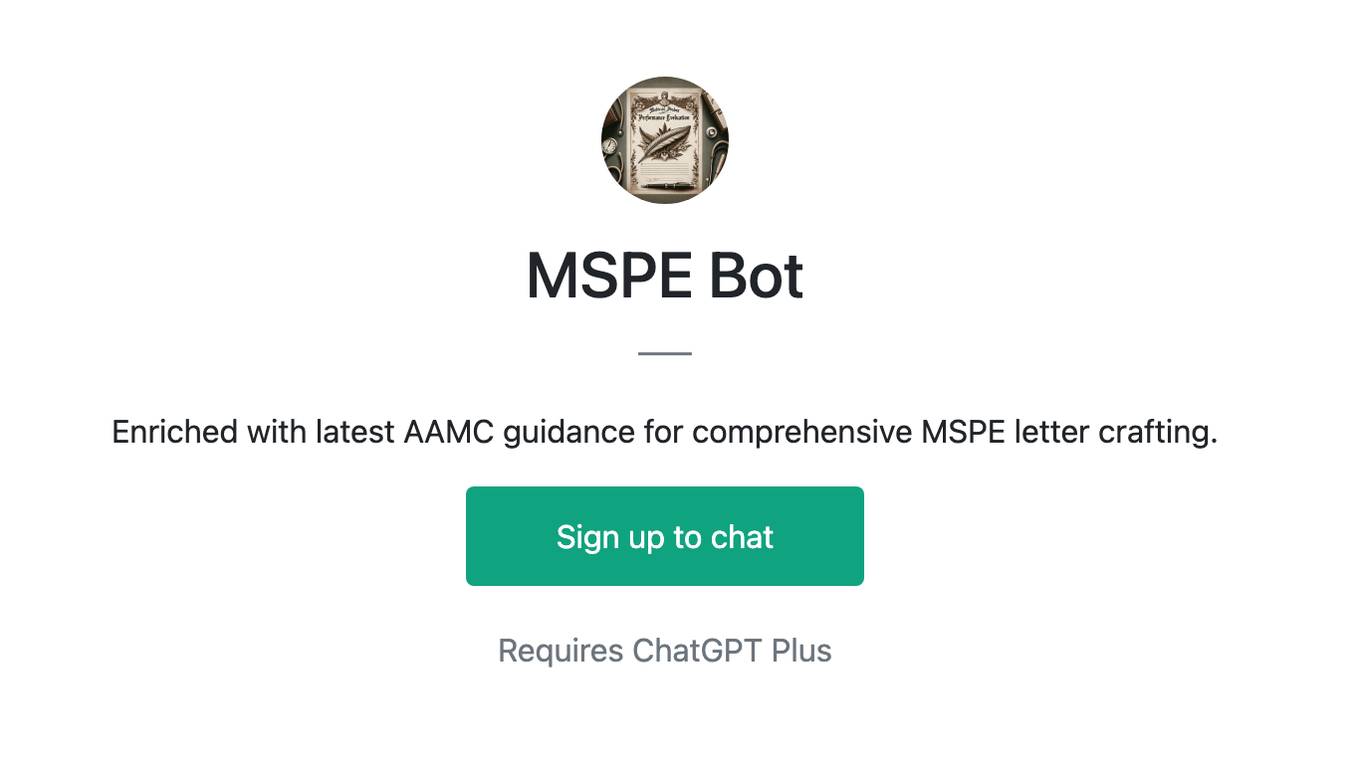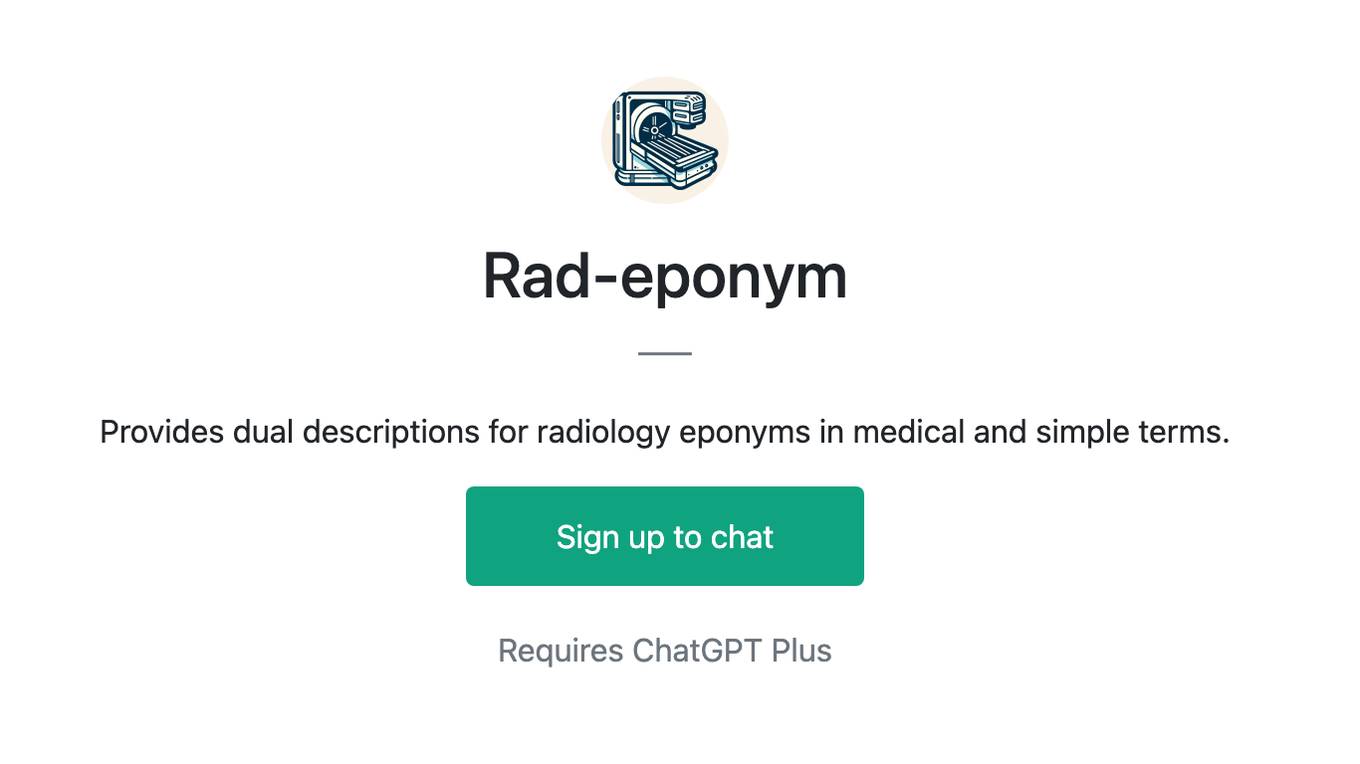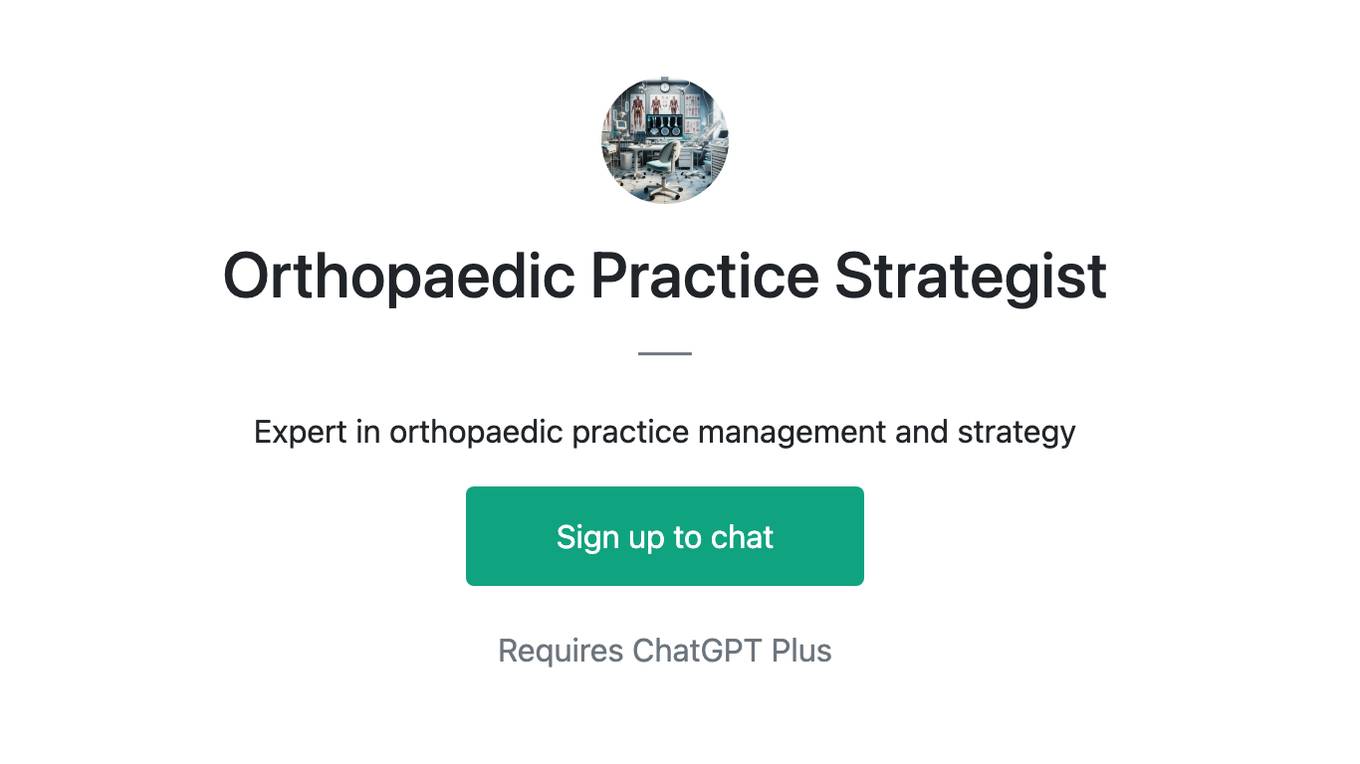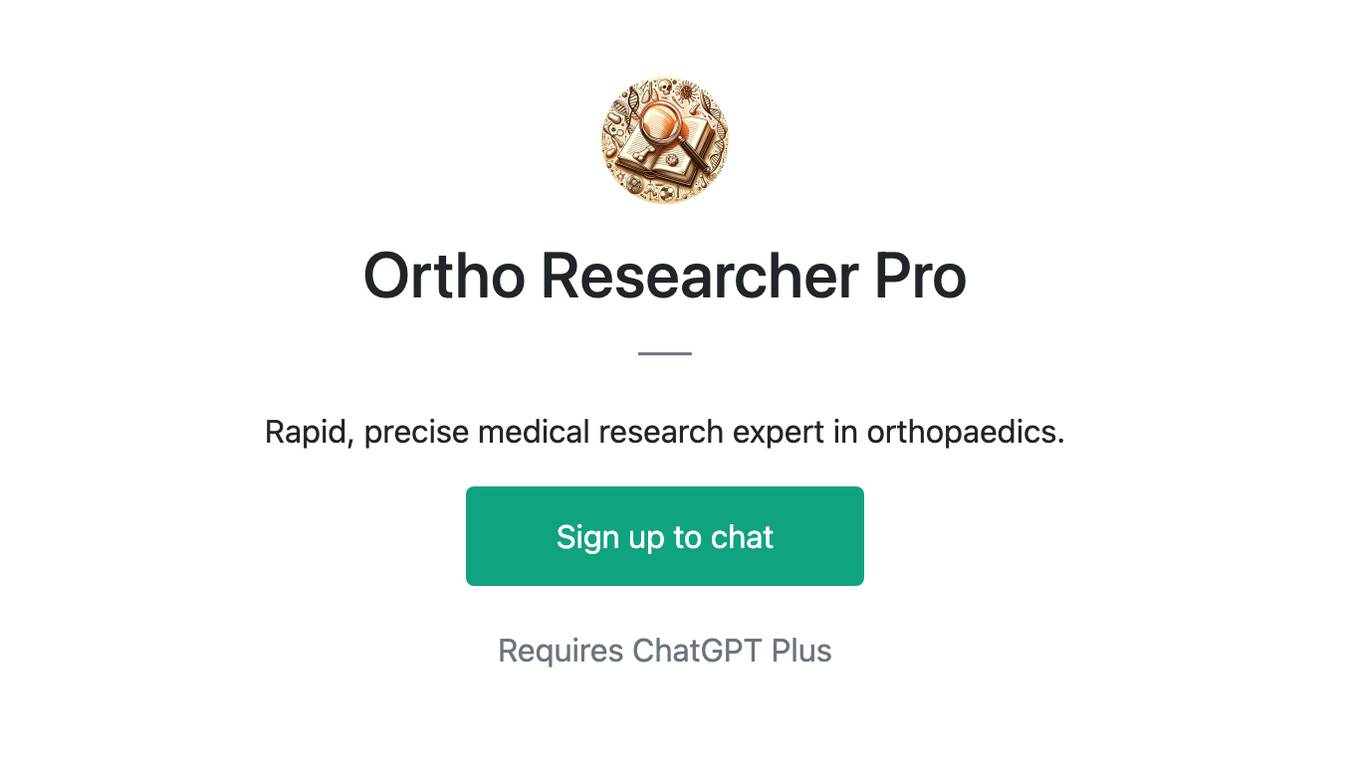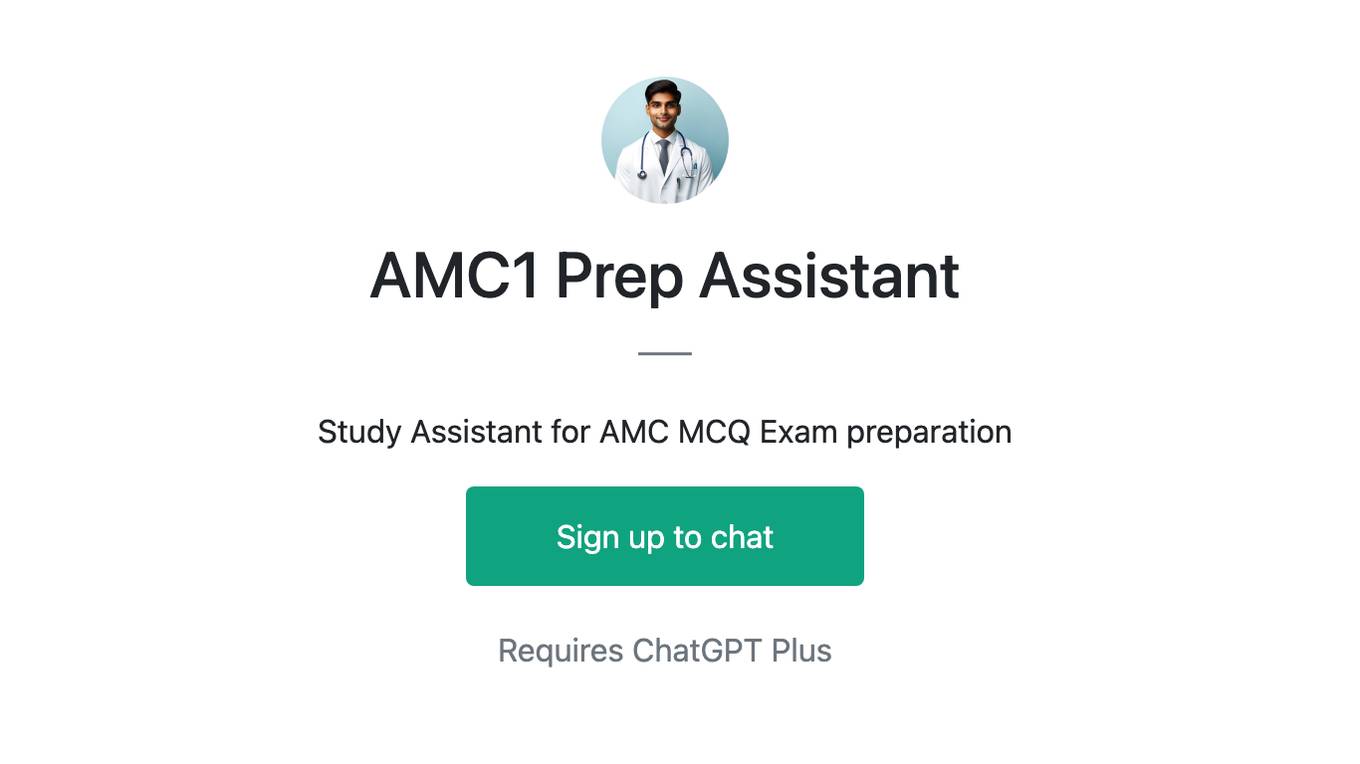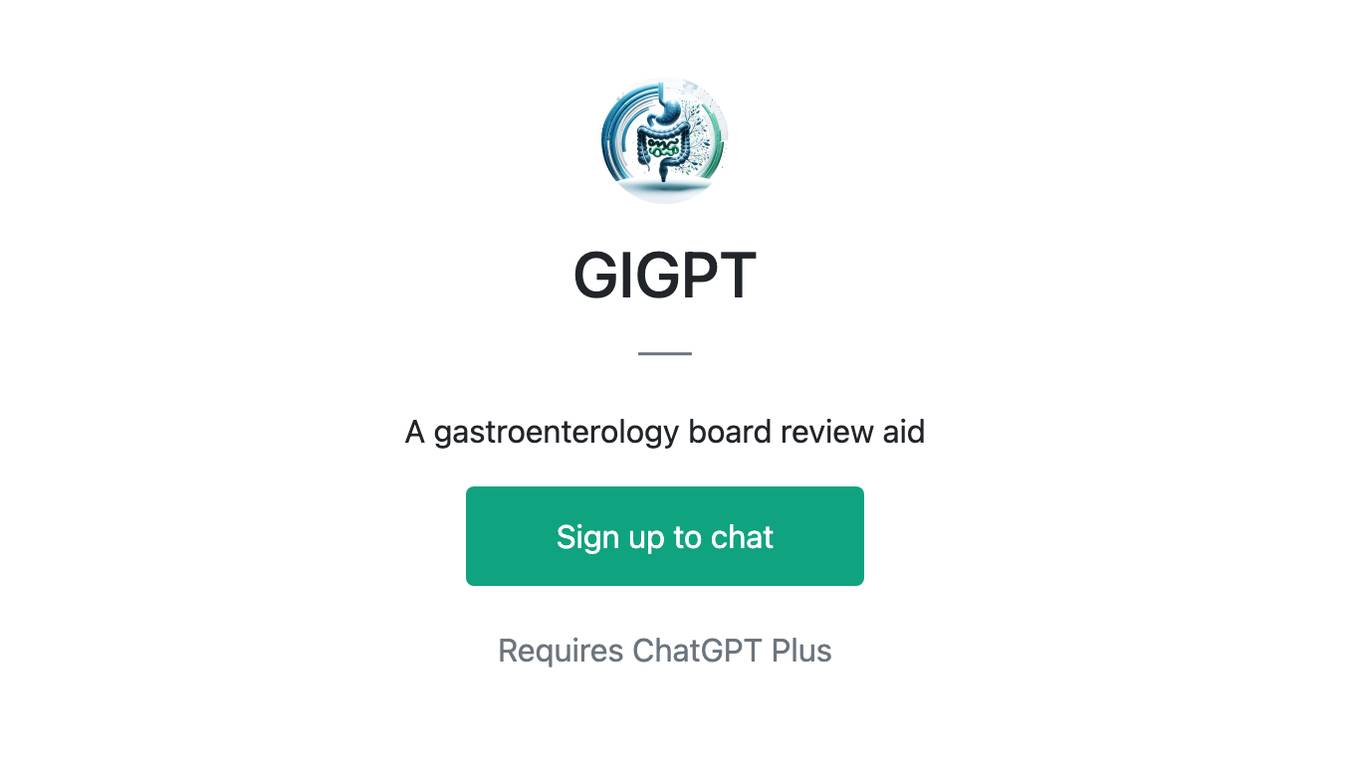Best AI tools for< Physician >
Infographic
13 - AI tool Sites
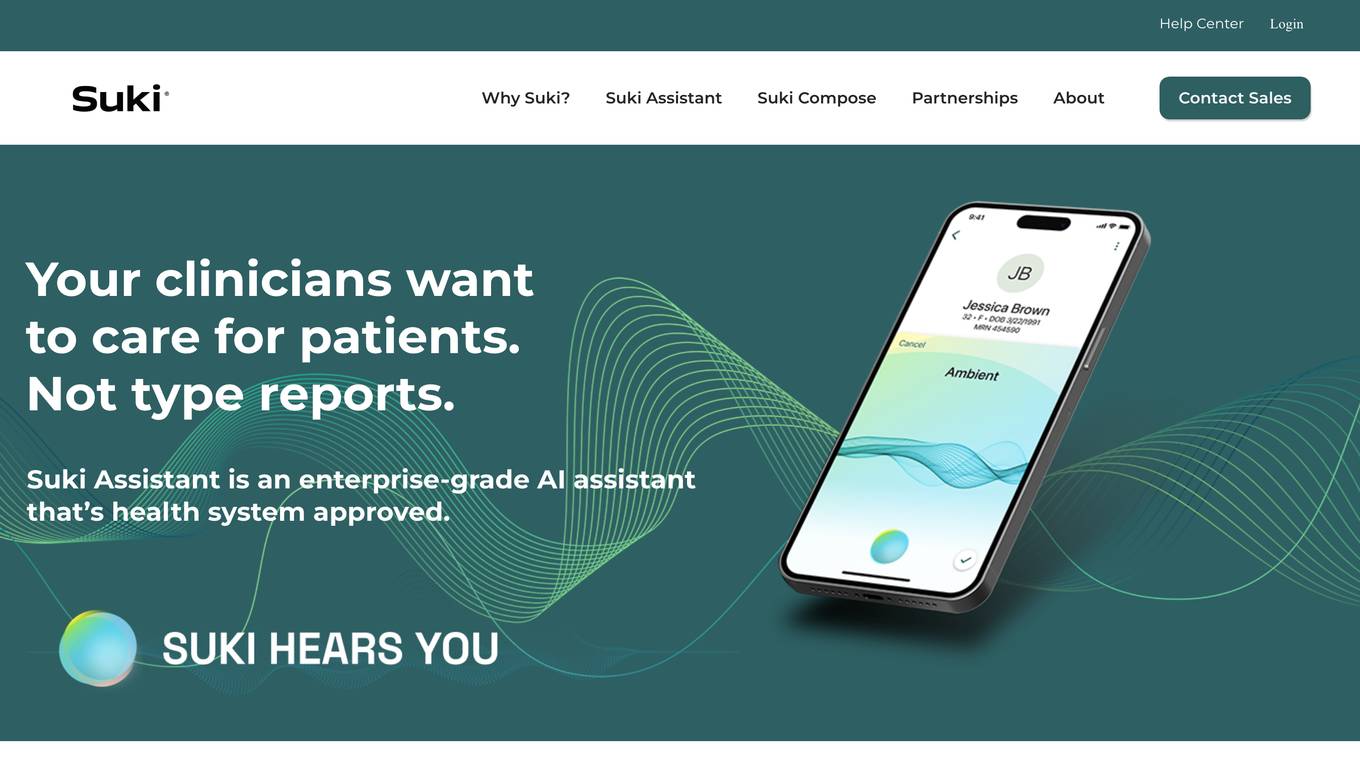
Suki AI
Suki AI is an AI-powered healthcare assistant that offers ambient documentation, clinical reasoning, assisted coding, and compliance solutions for clinicians. It provides a robust SDK and suite of APIs for integrating AI capabilities into healthcare applications. Suki aims to reduce the burden of documentation, allowing clinicians to focus on patient care. The platform is fully integrated with major enterprise EHR systems and ensures safe, clinician-reviewed documentation. Suki has a high adoption rate and delivers proven ROI by increasing coding accuracy and clinician efficiency.
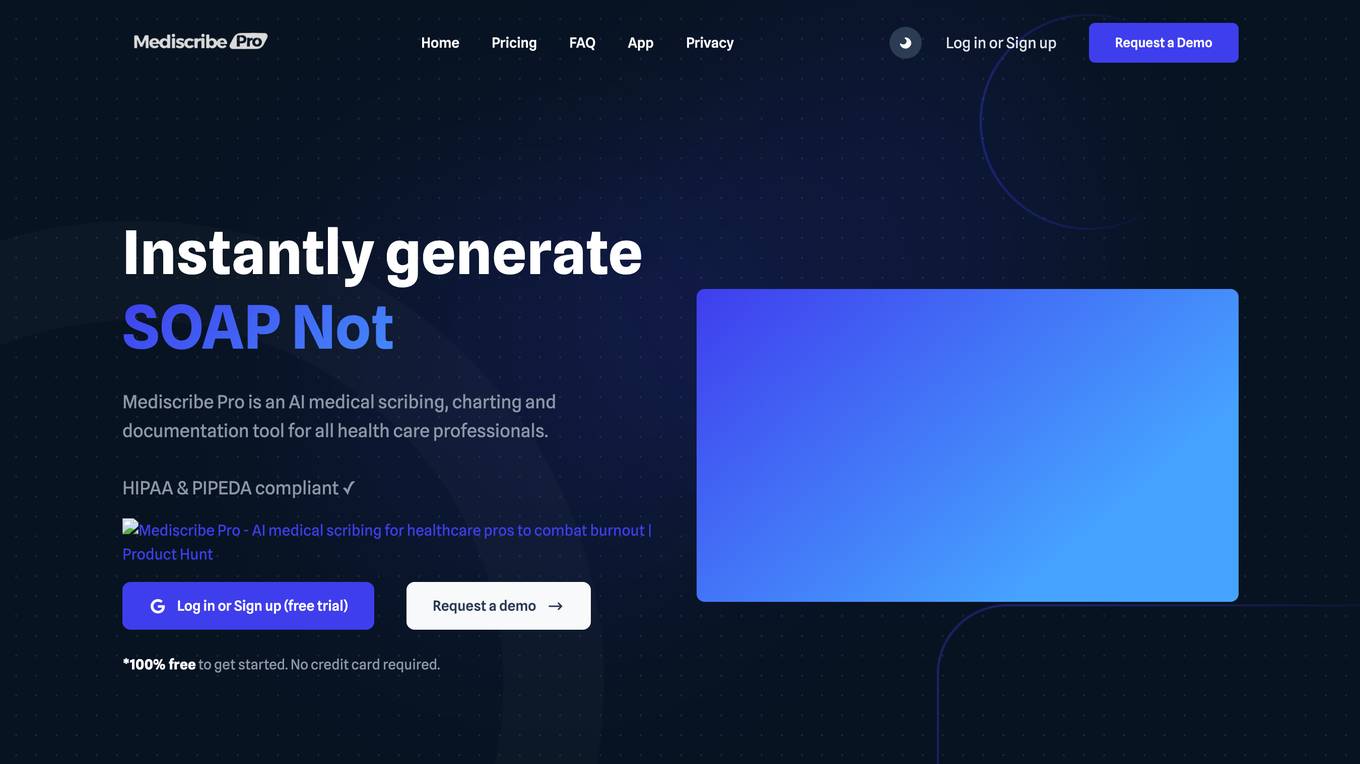
Mediscribe Pro
Mediscribe Pro is an AI-powered medical scribe and documentation tool designed for healthcare professionals. It utilizes advanced medical language models and artificial intelligence to generate medical dictations, transcriptions, and chart notes. Mediscribe Pro is HIPAA and PIPEDA compliant, ensuring the security and privacy of user data. The tool offers a range of features to streamline medical documentation, including a library of 100+ medical templates, voice-activated note-taking, and seamless integration with existing EMR systems. Mediscribe Pro is designed to reduce administrative burden, improve efficiency, and enhance patient care by allowing clinicians to spend more time with patients and focus on providing quality care.

Komodo Health
Komodo Health is a healthcare technology company that provides software applications to enable users to deliver exceptional value to their customers, colleagues, and patients. The company's Healthcare Map is the industry's most precise view of the U.S. healthcare system, and it combines the world's most comprehensive view of patient-encounters with innovative algorithms and decades of clinical expertise. Komodo Health's software applications are used by life sciences companies, payers, providers, and consultancies to improve the certainty of pre-launch plans, calculate Rx-based ROI for digital marketing, find patients with complicated or rare conditions, and more.

Qventus
Qventus is a healthcare operations automation platform that uses AI/ML, software templates, and best-practice operational processes to address the most important needs across hospitals and health systems. Qventus's solutions have been proven to improve surgical case volume, utilization of early block release, reduce excess days, boost revenue, and increase robotic surgical cases and lead time from proactive block release.
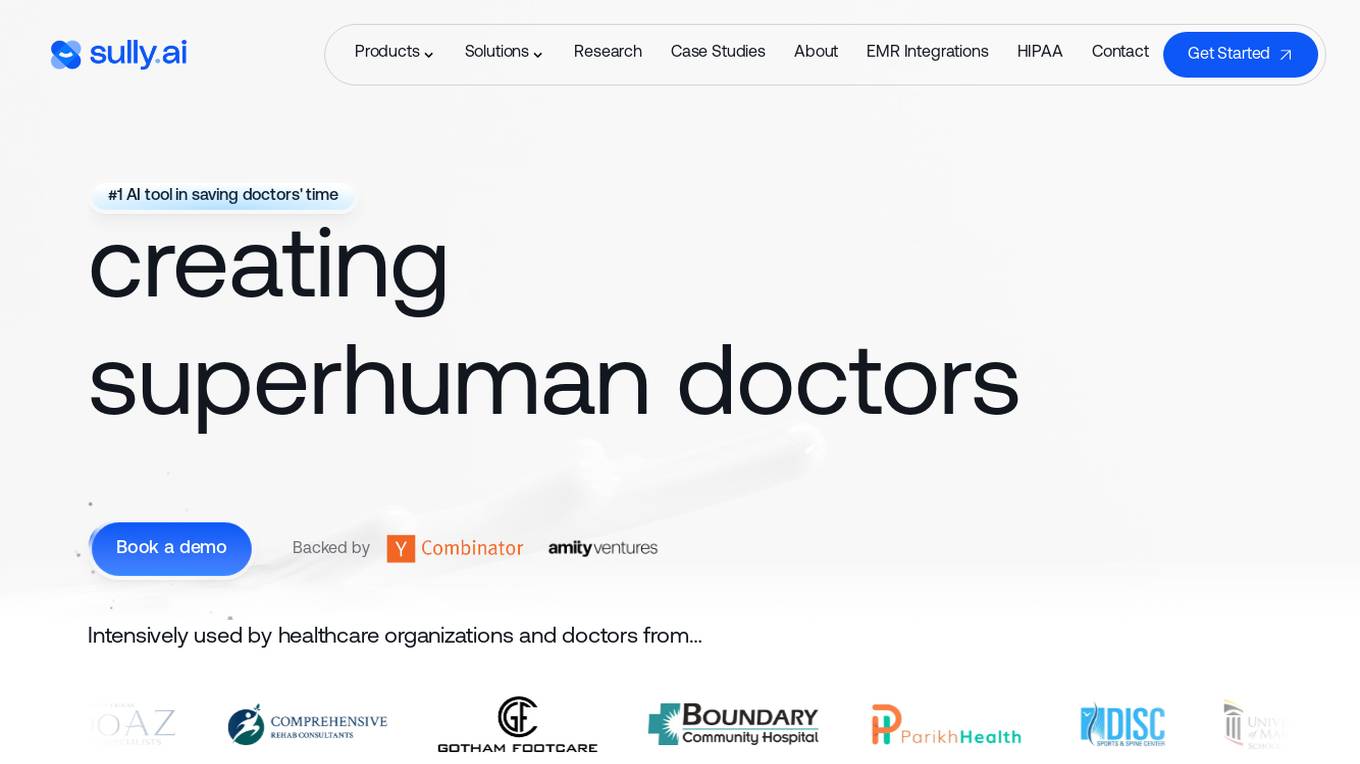
Sully.ai
Sully.ai is the #1 all-in-one AI solution designed to save doctors' time by creating superhuman doctors. The platform offers a comprehensive set of features such as pre-visit screening, decision support, scribing, diagnosis assistance, clinical planning, and post-visit automations. Sully.ai is an automation platform that works seamlessly with Electronic Medical Records (EMR) systems, providing personalized and multilingual support for healthcare professionals. The AI model is HIPAA compliant and trained on real-life doctor encounters to enhance decision-making and streamline administrative tasks. With proven results in reducing repetitive tasks and improving efficiency, Sully.ai aims to transform healthcare delivery by empowering doctors to focus on patient care.
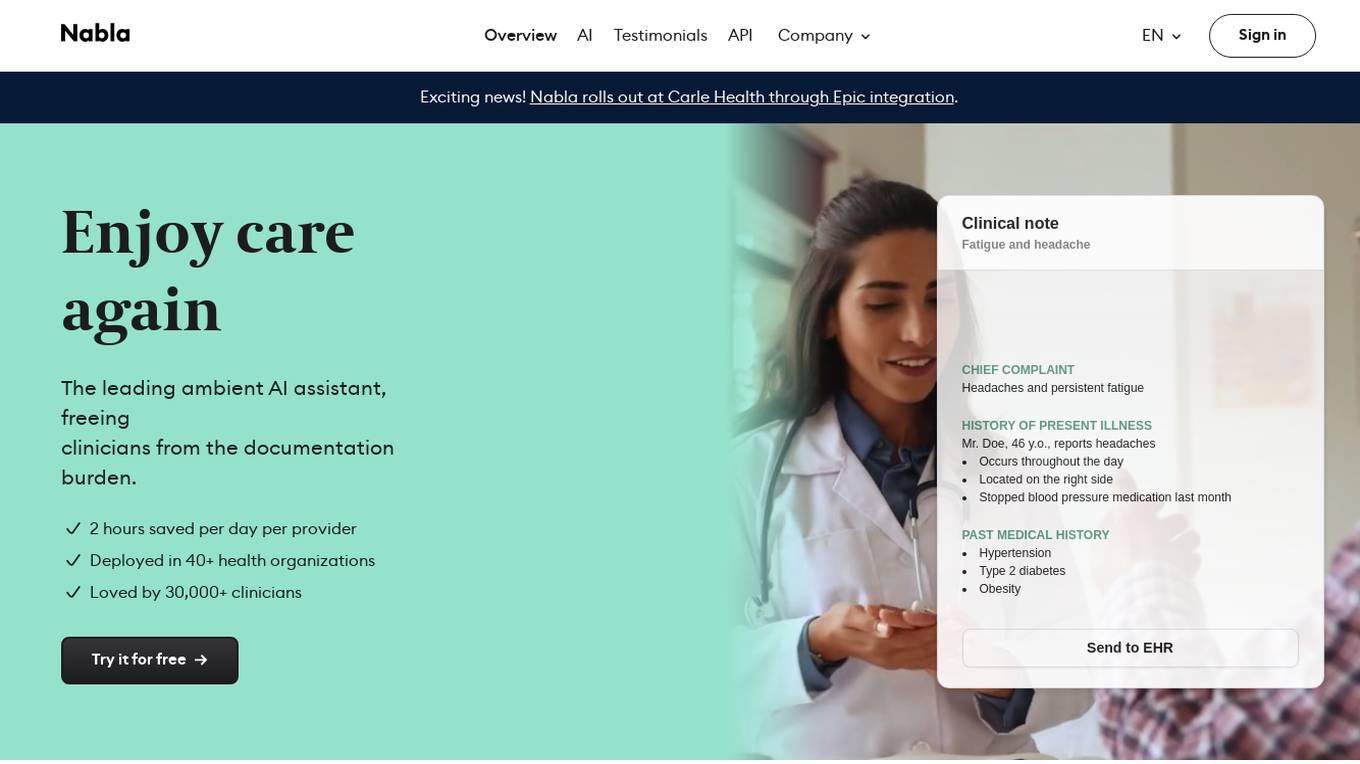
Nabla
Nabla is a leading ambient AI assistant designed to free clinicians from the burden of documentation. It saves clinicians 2 hours per day per provider by streamlining clinical documentation, allowing them to focus on patient care. With over 30,000 clinicians loving the application, Nabla provides detailed, accurate, and HIPAA-compliant visit or phone documentation in under a minute. The AI transcribe program is easy, convenient, and removes non-medical conversation, making it an indispensable tool for medical practitioners across various specialties.
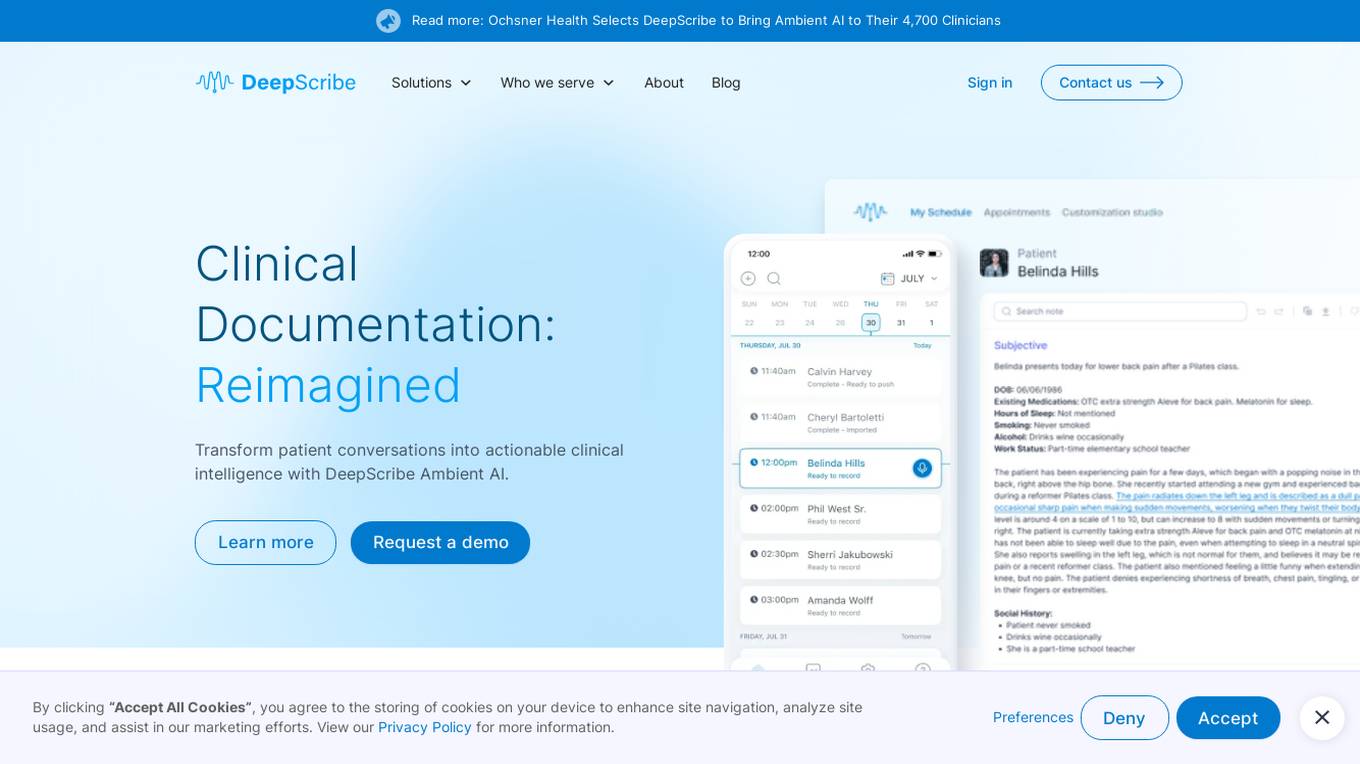
DeepScribe
DeepScribe is an AI medical scribe application that leverages advanced speech recognition technology to capture clinical conversations with extreme accuracy. It empowers clinicians and health systems with real-time AI insights, offers customization options to match provider workflows, and ensures trust and safety through features that promote AI transparency. DeepScribe is designed to save time, improve accuracy, drive adoption, and maximize revenue for doctors, hospitals, and health systems. The application is built for enterprise use, allowing users to unlock the power of AI and modernize their patient data strategy.
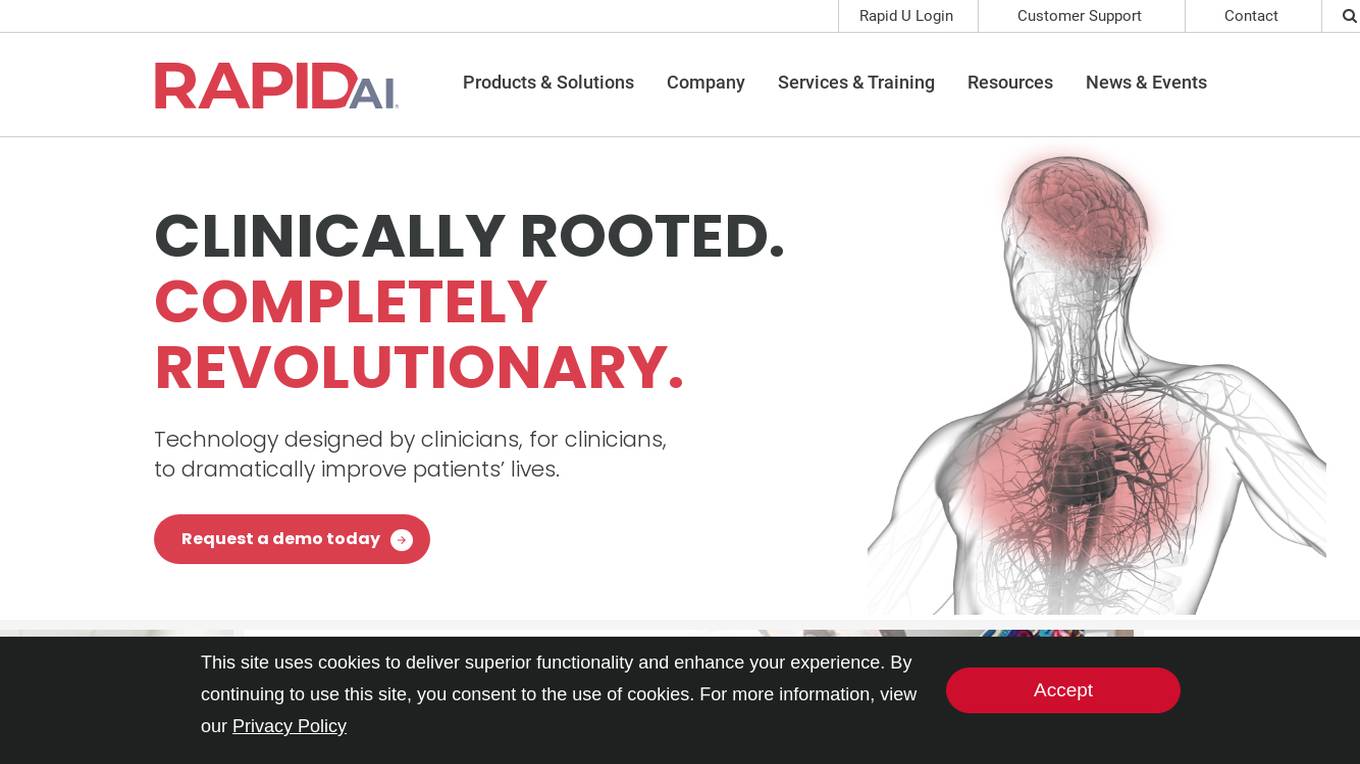
RapidAI
RapidAI is a software platform powered by AI that focuses on aneurysm, pulmonary embolism, and stroke. It offers a range of products and solutions designed to improve patient care and efficiency in hospitals. The technology is clinically rooted and revolutionary, developed by clinicians for clinicians. RapidAI's AI-based platform is known for its speed, scalability, and security, with customization options to meet specific hospital needs. The platform has been trusted by 2,200 hospitals, impacting 90 million lives over 15 years of technological development.
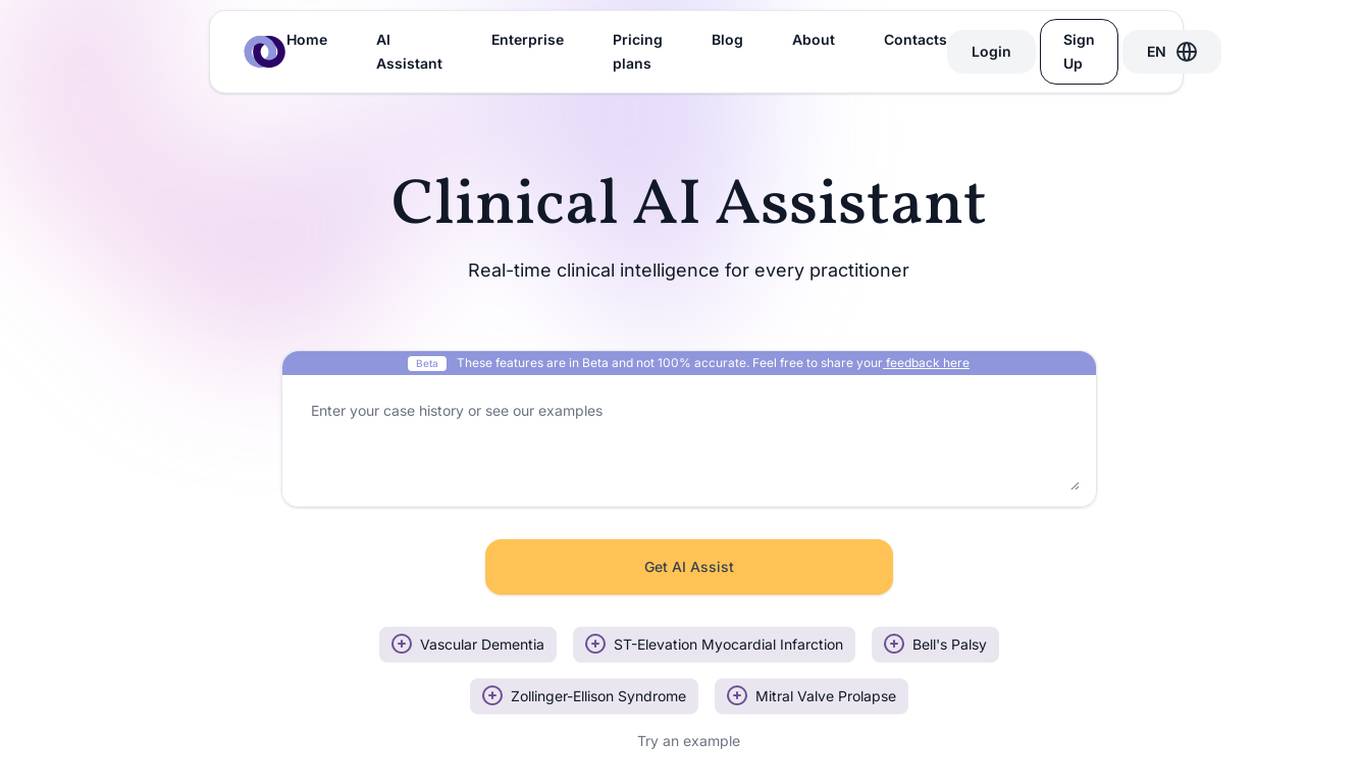
Medcol.io
Medcol.io is a clinical AI assistant designed to support healthcare professionals in making informed decisions by providing evidence-based recommendations and insights. The platform leverages advanced algorithms and medical data analysis to assist in diagnosing diseases, suggesting treatment plans, and predicting patient outcomes. With a user-friendly interface and real-time updates, Medcol.io aims to streamline the clinical decision-making process and improve patient care.
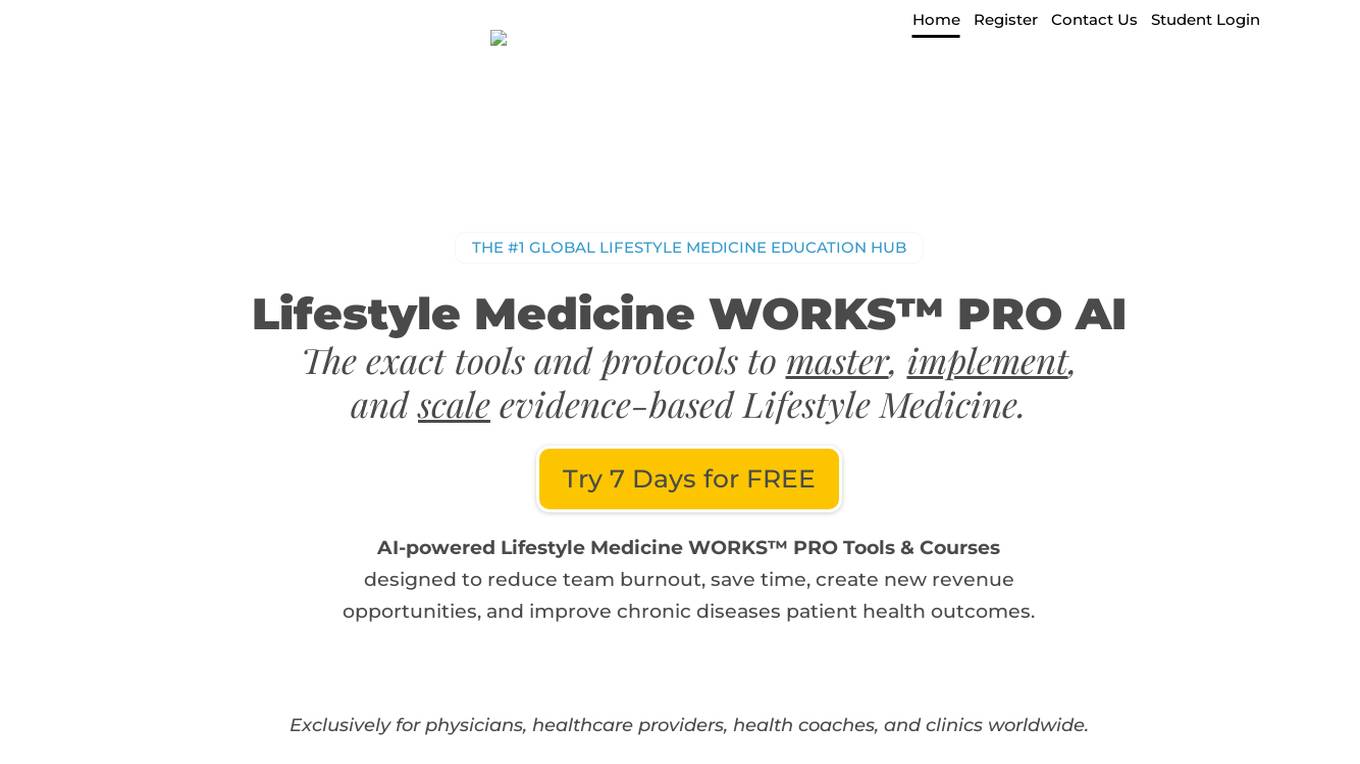
Lifestyle Medicine WORKS™ PRO AI
Lifestyle Medicine WORKS™ PRO AI is a comprehensive AI-powered platform designed for physicians, healthcare providers, and clinics worldwide. It offers tools and courses to master evidence-based Lifestyle Medicine, reduce team burnout, save time, create new revenue opportunities, and improve chronic diseases patient health outcomes. The platform includes 6 AI Assistants, a 101 Course, business strategies, certification, and more. Lifestyle Medicine WORKS™ PRO AI aims to empower healthcare professionals to seamlessly integrate evidence-based Lifestyle Medicine into their practice and help patients prevent, reduce, and even reverse chronic symptoms.
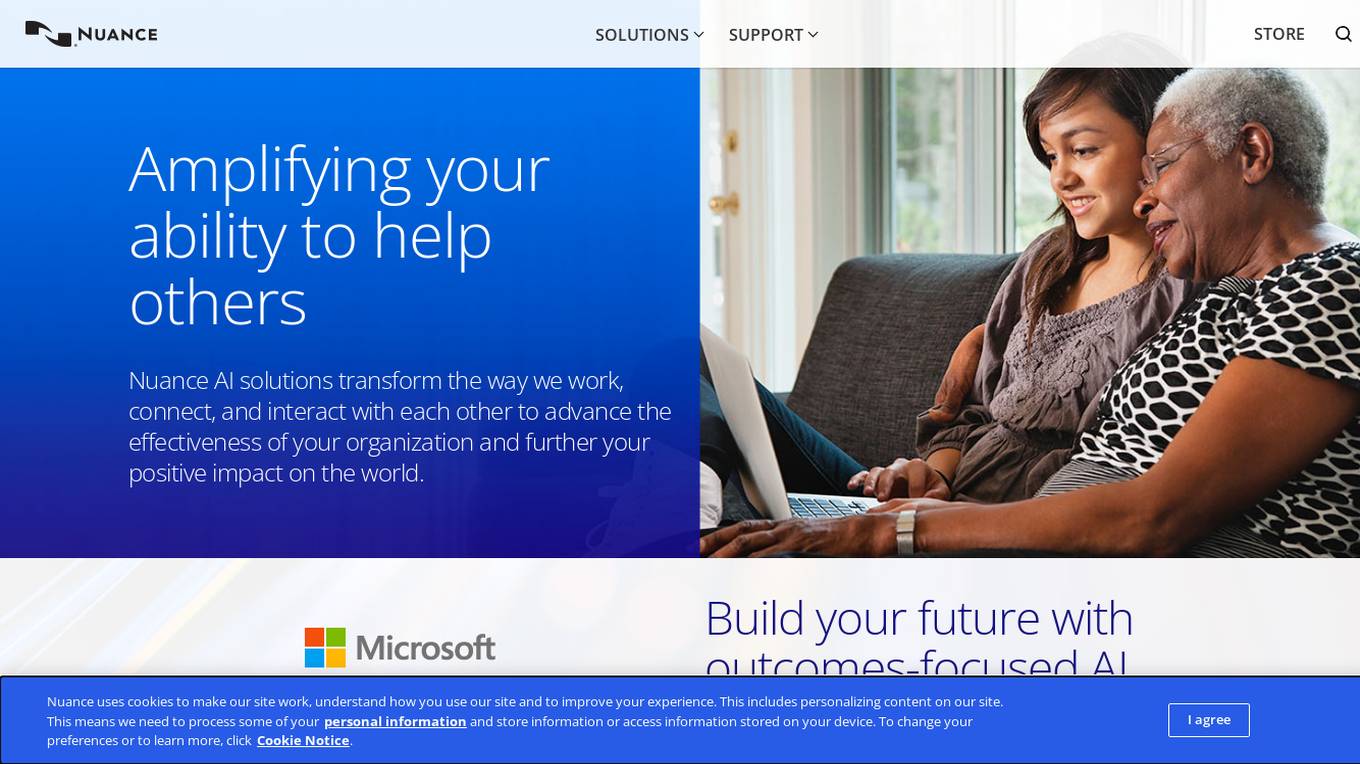
Nuance
Nuance is a Conversational AI platform specializing in Healthcare and Customer Engagement. It offers AI solutions and services that transform the way organizations work, connect, and interact with others. Nuance provides industry-leading AI technology and deep vertical expertise to address challenges and accelerate business results, from healthcare solutions to customer engagement. The platform aims to amplify users' ability to help others and advance the effectiveness of organizations, ultimately making a positive impact on the world.
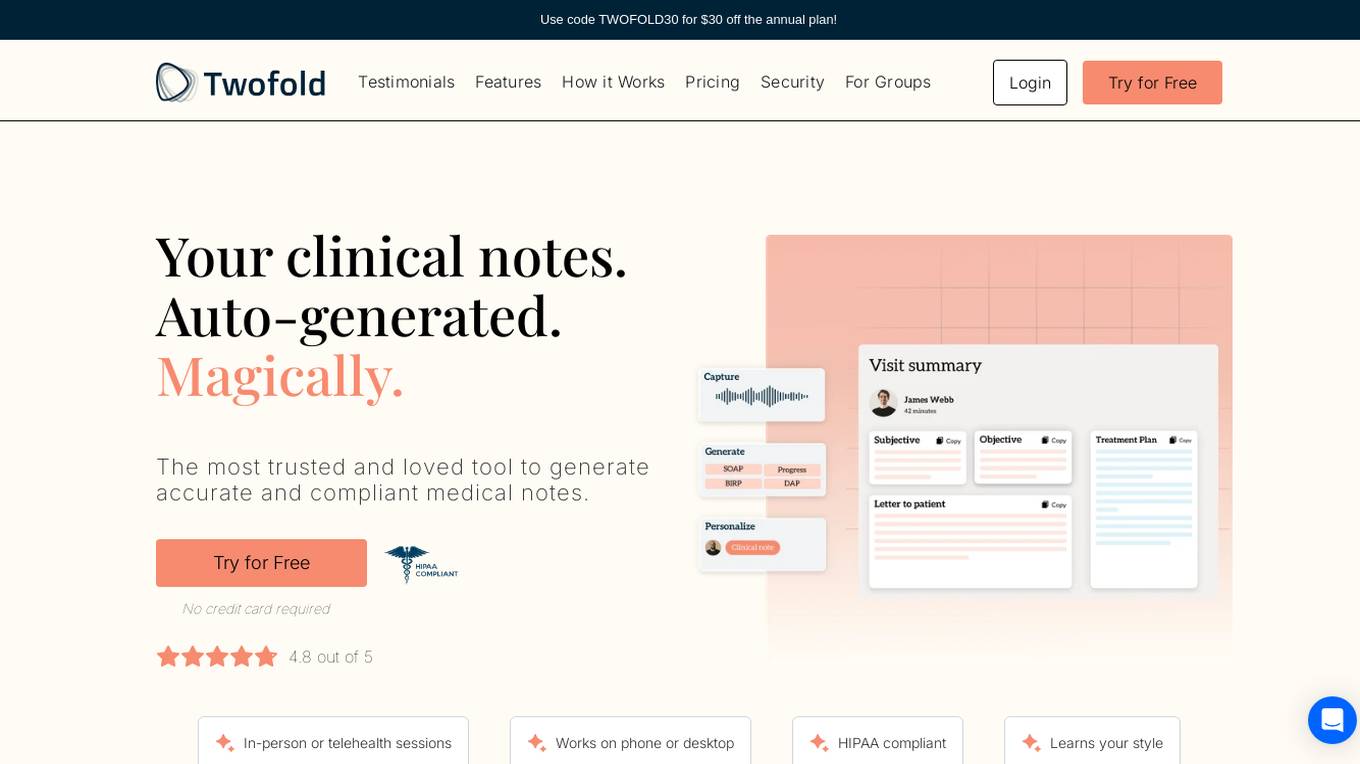
Twofold Health
Twofold Health is an AI medical scribe tool designed for clinicians to generate accurate and compliant medical notes effortlessly. It is built by clinicians for clinicians, offering a secure, personalized, and super simple solution that learns your writing style and improves over time. The tool is HIPAA and HITECH compliant, ensuring the security and confidentiality of patient and clinician data. With features like capturing conversations, reviewing and editing notes, and sending auto-generated patient instructions, Twofold Health aims to reduce burnout and improve patient care by allowing clinicians to focus on patients rather than paperwork.
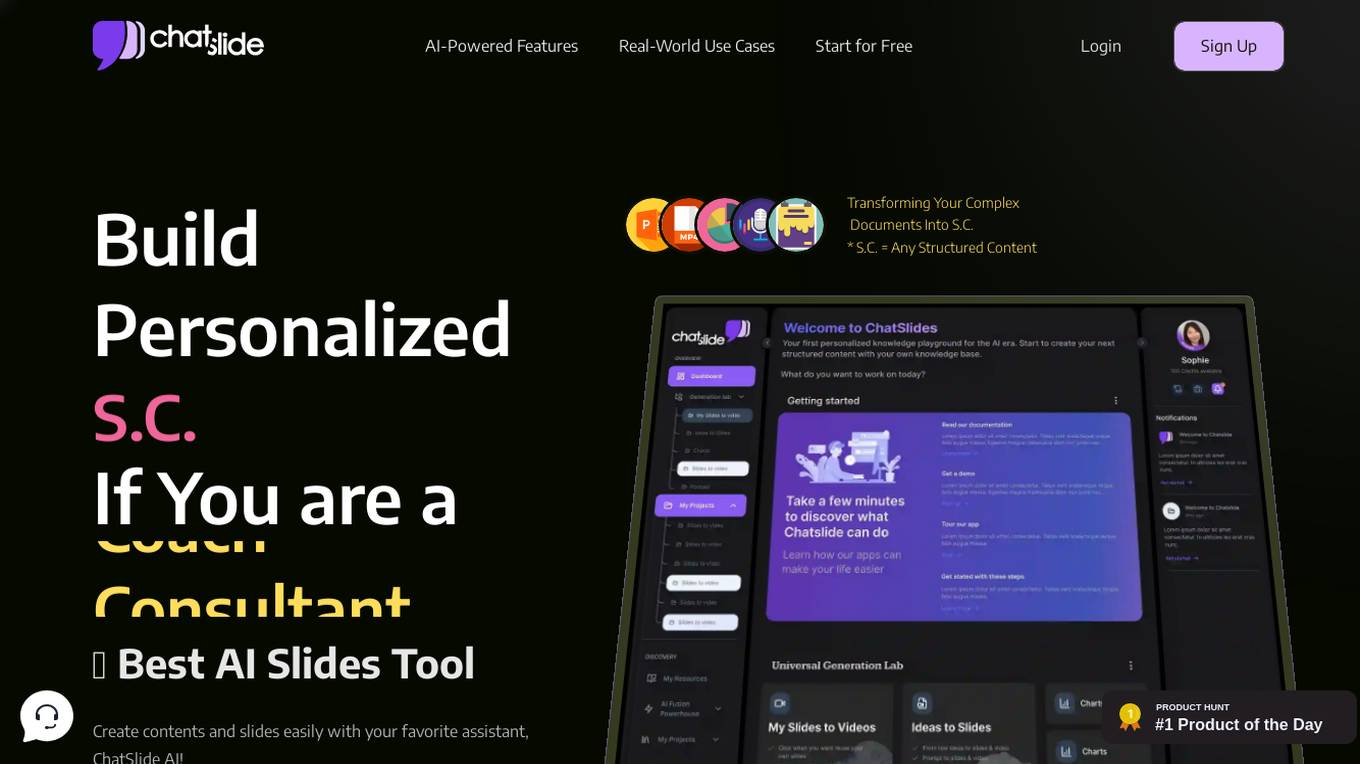
ChatSlide
ChatSlide is an AI workspace for knowledge sharing that offers AI-powered features to create personalized slides, videos, charts, posters, and podcasts. It allows users to easily generate content and slides with the help of ChatSlide AI, supporting multimodal documents. Trusted by users in 170 countries and 29 languages, ChatSlide transforms complex documents into structured content, offering real-world use cases for industries like healthcare. With flexible pricing plans, ChatSlide aims to revolutionize content creation by leveraging AI technology.
1 - Open Source Tools
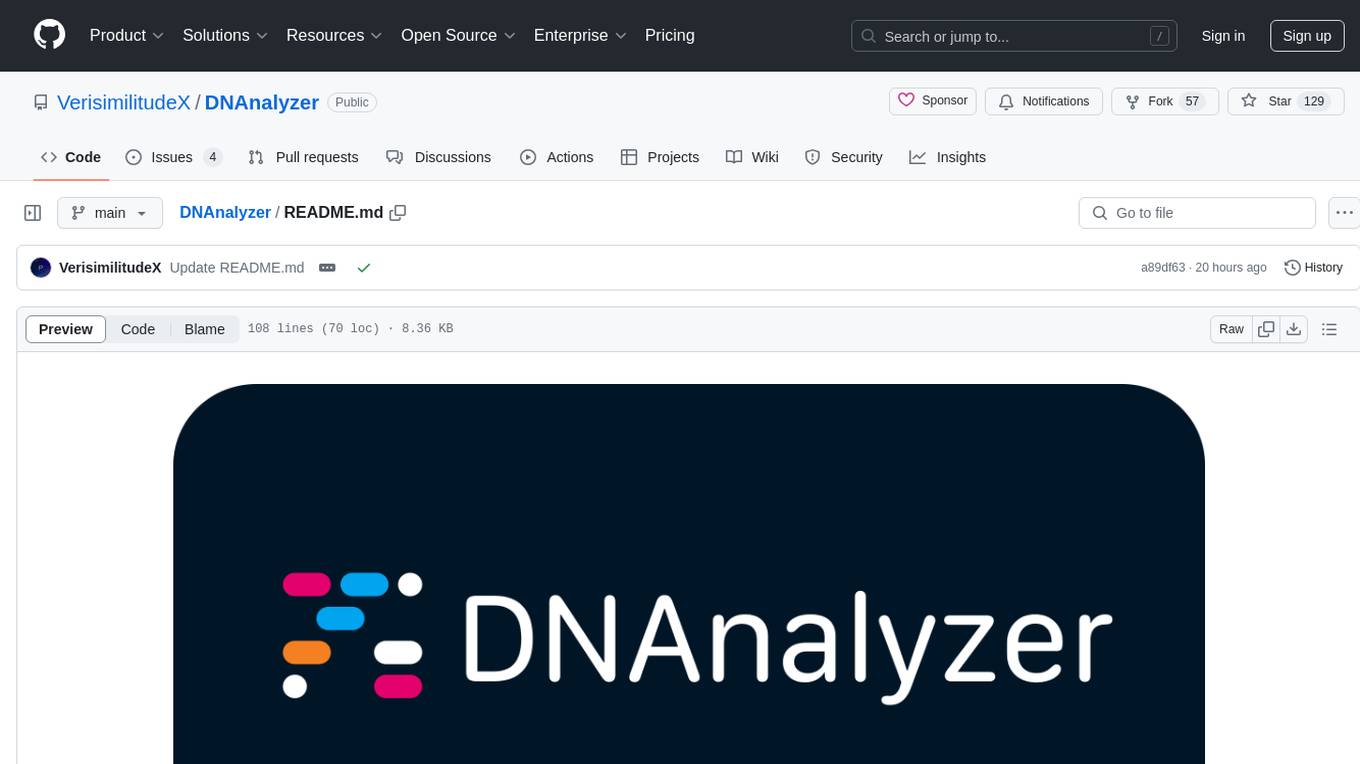
DNAnalyzer
DNAnalyzer is a nonprofit organization dedicated to revolutionizing DNA analysis through AI-powered tools. It aims to democratize access to DNA analysis for a deeper understanding of human health and disease. The tool provides innovative AI-powered analysis and interpretive tools to empower geneticists, physicians, and researchers to gain deep insights into DNA sequences, revolutionizing how we understand human health and disease.
20 - OpenAI Gpts
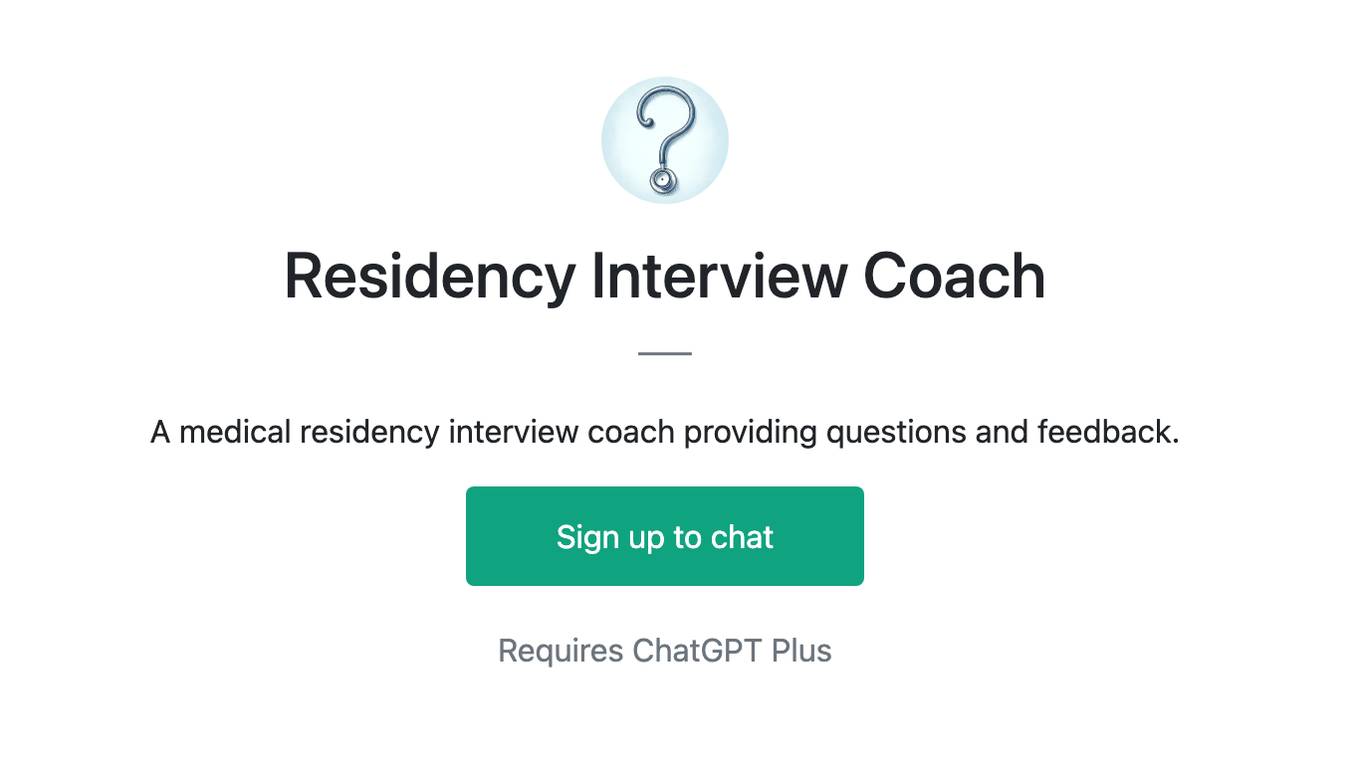
Residency Interview Coach
A medical residency interview coach providing questions and feedback.
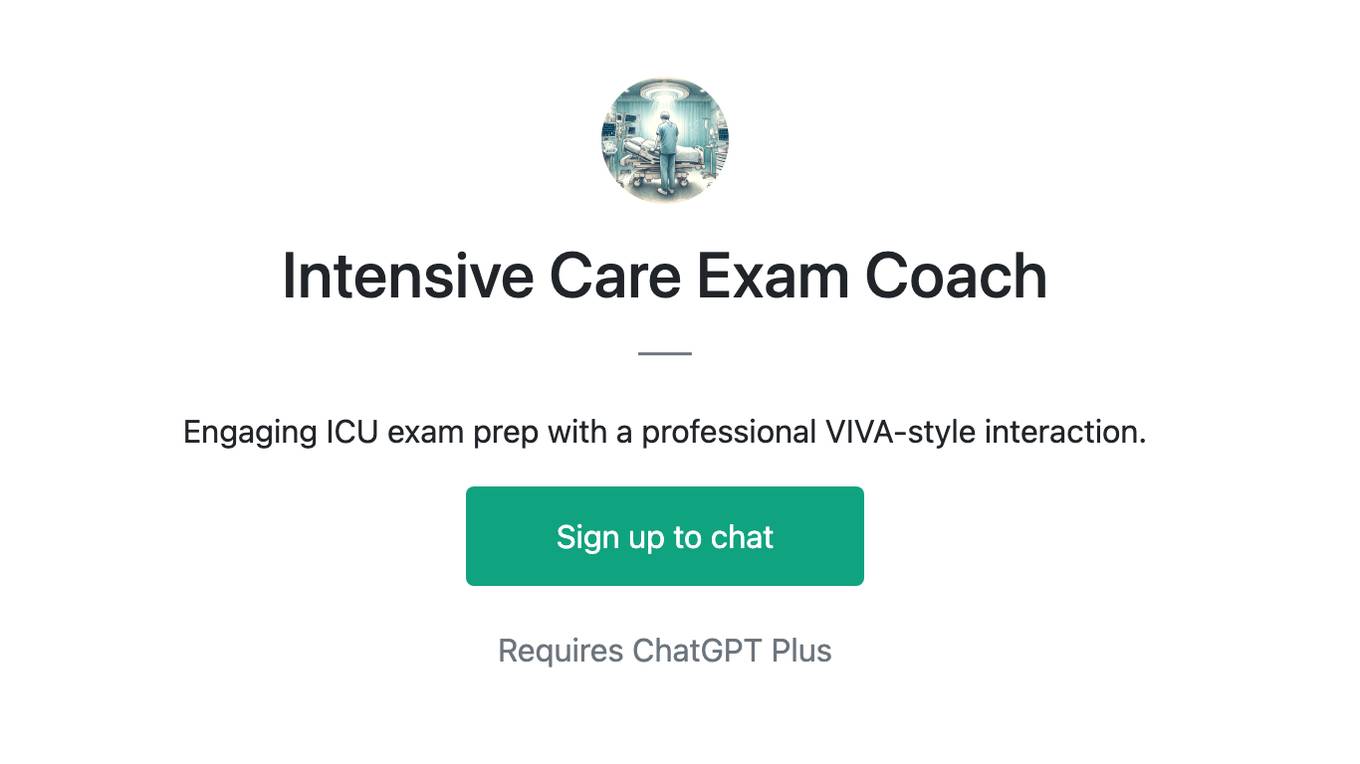
Intensive Care Exam Coach
Engaging ICU exam prep with a professional VIVA-style interaction.
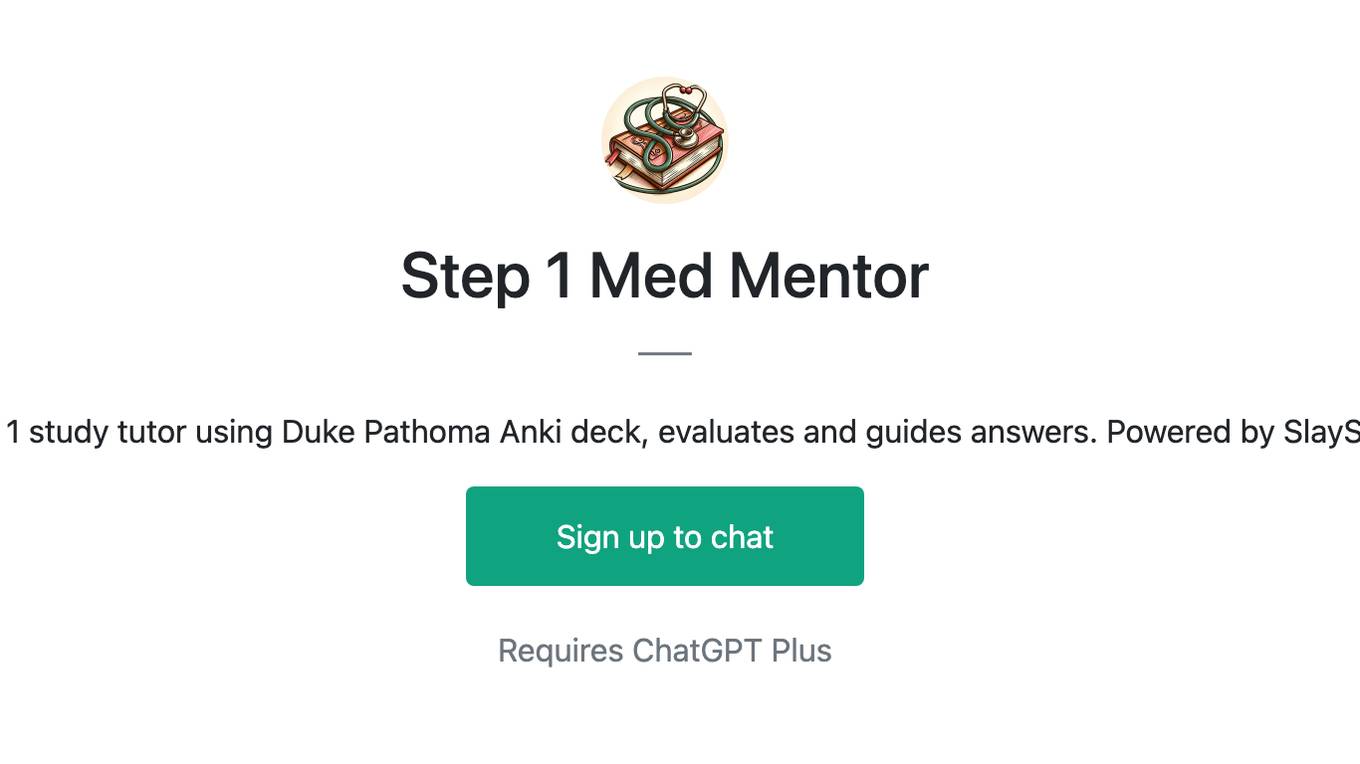
Step 1 Med Mentor
USMLE Step 1 study tutor using Duke Pathoma Anki deck, evaluates and guides answers. Powered by SlaySchool.com
